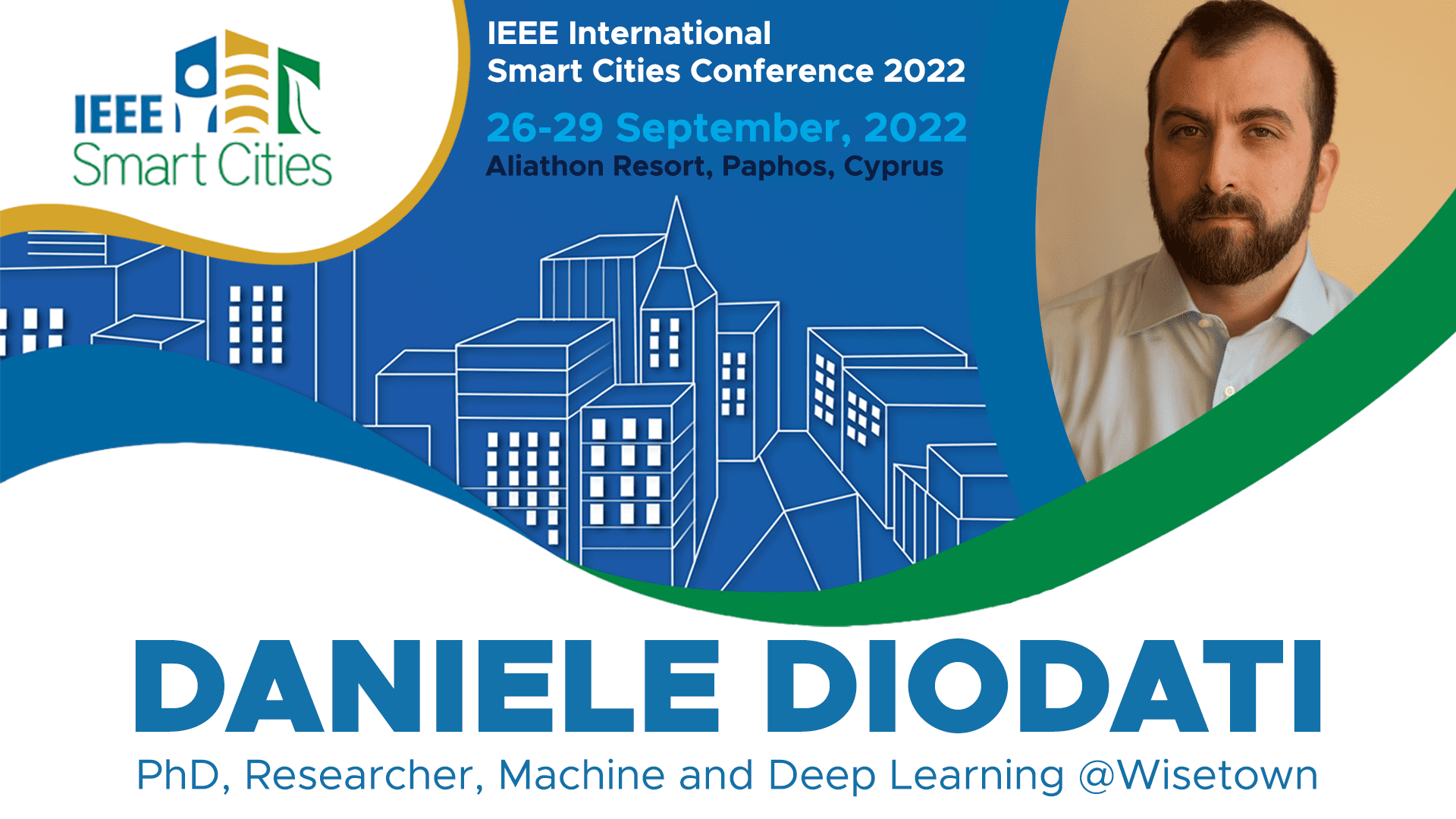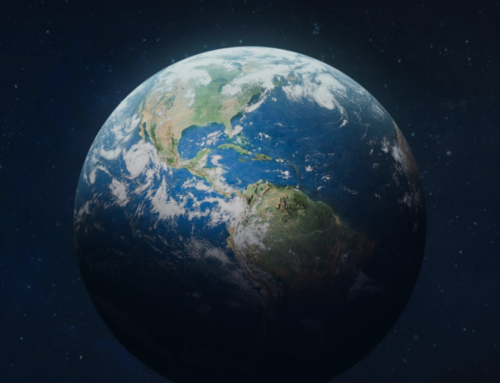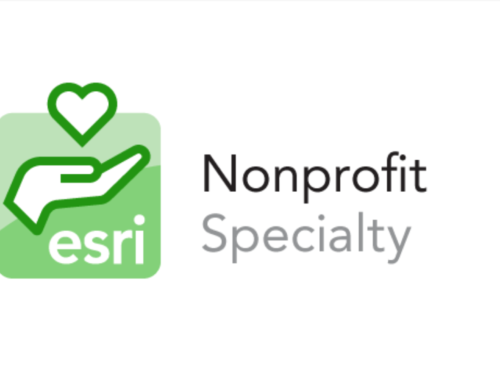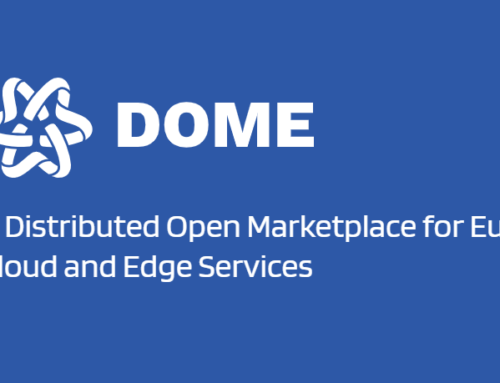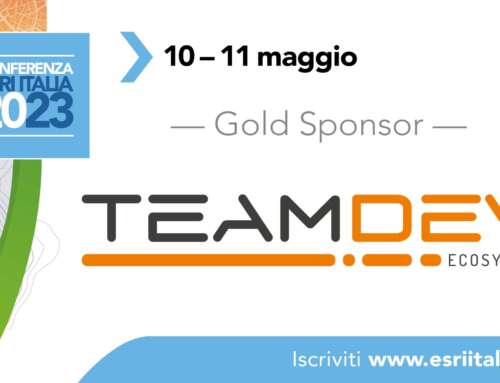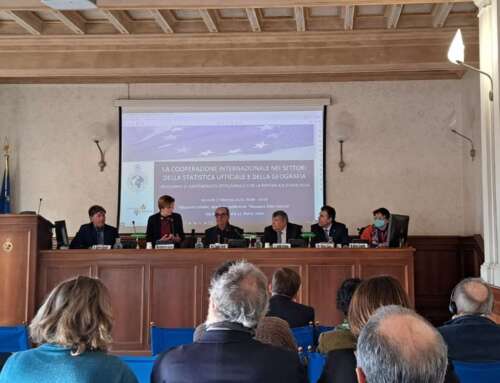Our contribution to the IEEE Smart City Conference 2022
In the beautiful location of Paphos, Cyprus, took place the 8th IEEE International Smart City Conference, an international event that brings together city leaders, experts, academics and researchers to discuss the future of urban innovation. The conference is the leading Smart City event of IEEE, the global organization dedicated to “advancing technology for the benefit of humanity”.
We were there in Paphos, together with a large number of attendees from over 40 countries around the world, selected as speakers thanks to the work of WiseTown, our brand dedicated to the development of Smart City solutions.
Remote Sensing and Artificial Intelligence for Cities
The annual theme of the conference was “Community Smartification and Towards ZERO emission Smart Cities for a Green New Era”: the focus was on the transition to sustainable cities, in line with the directions of Sustainable Development Goal 11 (SDG 11 – Sustanable Cities and Communities) and the discussions of major international initiatives such as the COPs, which grew out of the Unfccc Convention. A topic that is becoming increasingly relevant, considering the dire effects of climate change and looking at data on urban pollution (according to some estimates, cities are responsible for about 75 percent of global CO2 emissions).
The paper we presented is “Machine and Deep Learning using Remote Sensing to reach zero emission cities: A Survey” and can be found on this page. It is a dissertation in which authors Daniele Diodati, Andrea Cruciani and Antonio Natale review recent work to demonstrate how Remote Sensing and Artificial Intelligence technologies can drive the path of ecological transition of our cities.
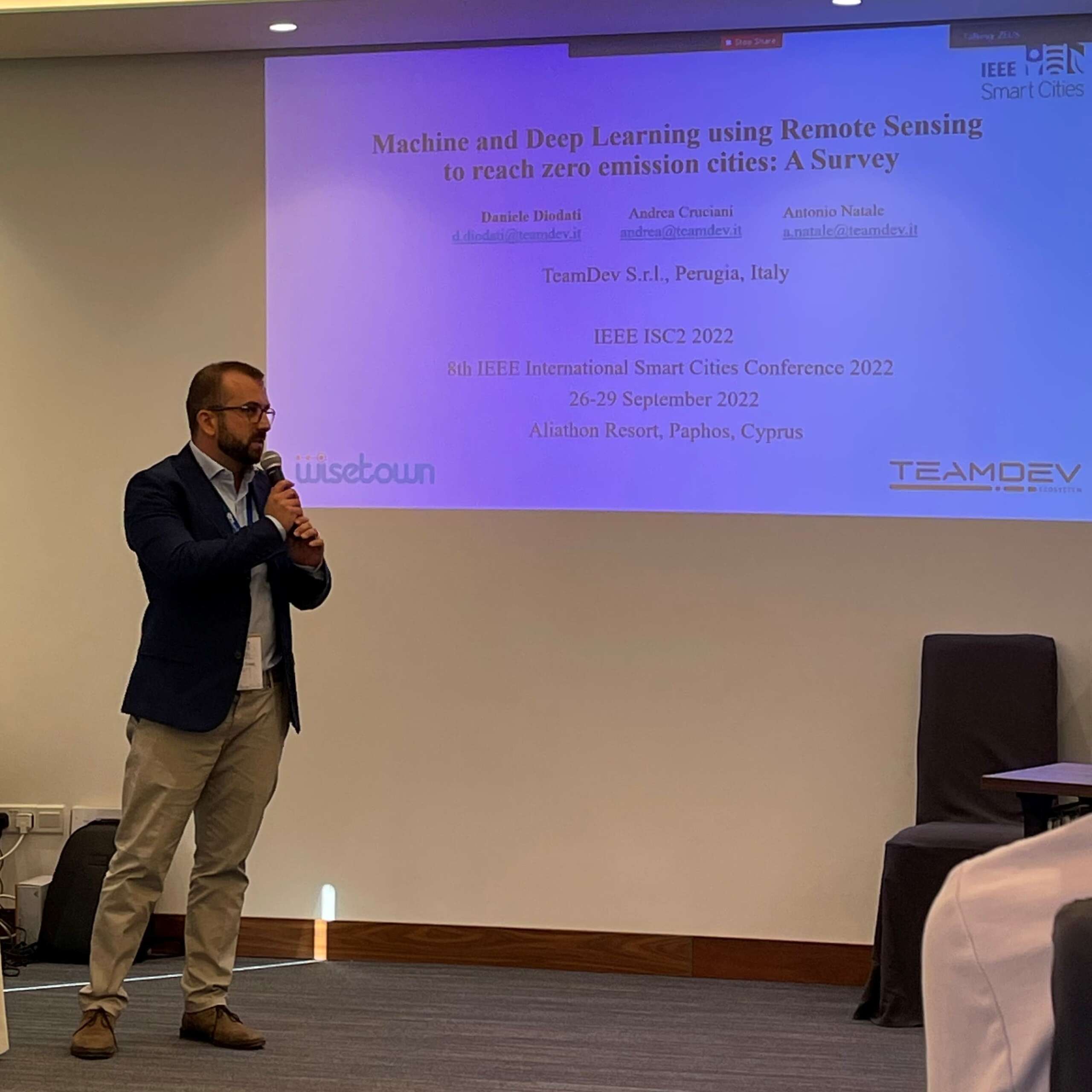
Smart and Sustainable Cities
The IEEE conference collected outstanding contributions, which we try to present in this article. At the heart of the discussion was the city of the future: the Smart City. A smart city for sure is also a sustainable city. Because innovation means improving the quality of processes and services for the benefit of citizens and the Planet. The innovation challenge includes different components of society, decision-makers, professionals, scholars, companies, and is the result of some fundamental actions: digitization of cities, deep knowledge of the context, and evolution of the technological skills of the stakeholders.
However, while the transition needs to be disruptive in order to be effective, it is important that citizens be carefully accompanied toward a new community equilibrium. This means ensuring a sustainable transition that is based on the well-being of citizens; therefore, becomes crucial the involvement of the citizenship in the decision-making process with the aim of not creating a mismatch between the needs of the city as an ecosystem of administrative life and the city as vital place of a community.
the path identified to implement the change that cities need to experience in a unified way involves convergence toward universal solutions using standard and recognized models.. The reference paradigm that emerged at the IEEE Smart City Conference is that of FIWARE, a leading European ecosystem defining open standards for interoperable digital solutions. Speaking of Smart City, FIWARE can establish itself as a real driving force for large-scale innovation.
The future of WiseTown
In conclusion, the challenge we take up as TeamDev is in the creation of multi-domain and multi-approach systems, easily scalable and quickly integrable by the Public Administration. The future we envision is being built with WiseTown, thanks in part to the use of FIWARE technologies; the recent success at the EU Datathon (a European competition that rewards the most innovative solutions in the use of data for urban sustainability) and the role at the Smart City Expo in Barcelona are the steps that mark the path to WiseTown’s innovation.

